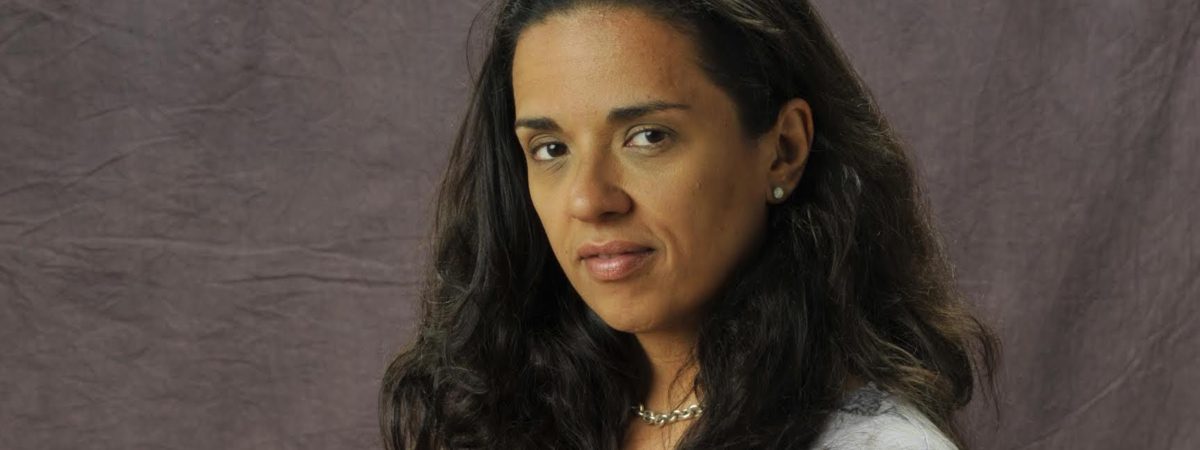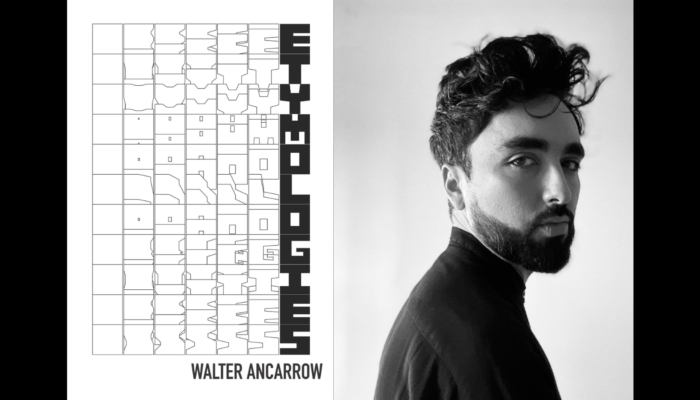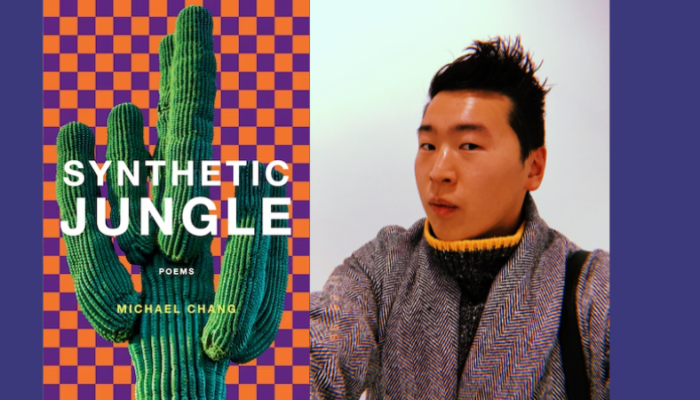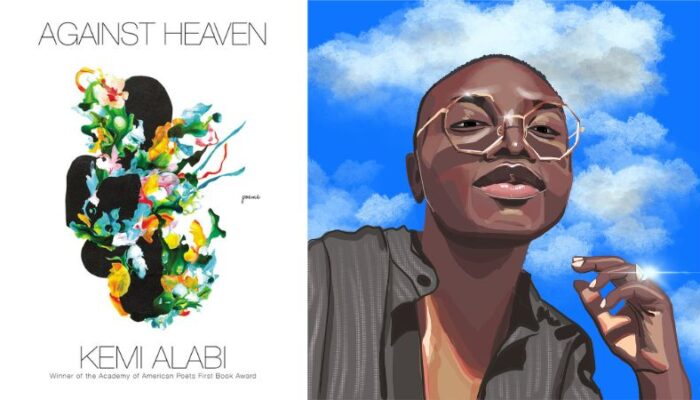One String Guitar (Harvard Square Editions, 2016) weaves the histories of the Rwandan genocide and the 1973 Siege at Wounded Knee through two women’s stories—Francine, a survivor of the genocide who has resettled in upstate New York; and her medical interpreter, Elbe, who was born on a reservation and adopted by a white family. One-String Guitar follows their journeys to come to terms with their personal and generational trauma. You can order One-String Guitar here.
Executive Editor Alexandra Watson talked with One-String Guitar’s author, Mona de Vestel, about solidarity across struggles, historical trauma, and the legacy of colonialism.
Alexandra Watson (AW): One-String Guitar weaves the stories of Elbe, a medical interpreter born on a Lakota reservation in South Dakota and adopted by white parents; and Francine, a refugee of the Rwandan genocide. While their struggles seem worlds apart, they are intimately connected. How do you see their struggles, and the struggles they represent, relating or intersecting?
Mona de Vestel (MdV): I’m interested in the consequences of historical trauma across different marginalized groups and perspectives. Francine comes from the post-colonial perspective–the Rwandan genocide is directly linked to the history of the Belgian Congo. Elbe’s story represents a chapter in American history, in the ‘70s, when all those babies were taken away from Native families and put into white families to be adopted, a policy that was a legacy of the history of genocide in the U.S.
I wanted to try to connect these two different chapters that, on the surface, seem radically different, but once you look at these histories side-by-side, you start seeing connections–in the consequences of historical trauma across these different cultures. Francine’s story is more closely linked to my own family’s historical legacy, because my parents are Belgian and Burundian, and Burundi and Rwanda were geographically delineated by Belgium. But I live in America, and I’m really interested in looking at the legacy of slavery and genocide in the U.S. I can really see the links–the rate of incarceration of African-Americans and the horrific conditions on reservations are directly linked to the chapters of slavery and genocide in this country. And when you look at conditions in present-day Congo, you can link these directly to the events that took place during colonialism in the Belgian Congo. The chaos in the Congo today—killings and mass rapes—cannot be disentangled from the threads of Belgium’s colonial history. This is why I linked those two characters.
AW: I see that. Even though Elbe and Francine didn’t talk to each other much in the book, I felt like their stories were in conversation, and I felt an empathy between them, and saw the parallels between the depression and devastation of reservation life, and the consequences of the colonial legacy in Rwanda. It’s interesting that they’re communicating in French, a language that’s not the native tongue for either of them.
MdV: Elbe comes from a fairly privileged background. Her mother is a part of the French aristocracy, her father is American, they’re highly educated. Yet the severance of her identity as an adoptee and the fact that she was told almost nothing about her background except, “You come from this place and there’s someone looking for you,” reveal the consequences of her trauma in similar ways to the historical consequences in Francine’s life. The characters experience their respective narratives similarly even though their circumstances are radically different. On the surface, some people might think that Elbe doesn’t really have a reason to feel traumatized, but trauma manifests itself in different ways in society–privilege can also manifest trauma. You don’t have to witness your entire family murdered in front of you to have your suffering validated as a result of the legacy you’re handed.
AW: I was thinking about the resonances I felt reading this, in a time of the protests over the Dakota Access Pipeline. To extend the last question to the current protests over the Dakota Access Pipeline, how do you think other people of color can stand in solidarity with the Standing Rock Sioux and other affected tribes? Do you see any resonance with One-String Guitar in the activism going on now?
MdV: I’ve been thinking about it a lot. What happened at Wounded Knee in 1973, which takes place in the book, and what is happening now at Standing Rock, is what has happened time and time again–the abhorrent treatment of native people in the Americas, going back to the 1800s, with the original Wounded Knee. This narrative loop of oppression and disregard for native sovereignty and dignity keeps repeating itself–the violation of treaties, the demeaning of their culture. There’s something heart-wrenching about the way mainstream American culture demeans Native culture and history. We have a Civil Rights Movement for African-Americans, but nothing like that for Natives. People and the media behave as though Native Americans are not even in existence anymore. My message in One-String Guitar is loud and clear, and it echoes that from the Native community–we’re still here, our culture is sacred, and our land should be respected and protected. Clearly, we can see that the brutality and disregard from the US government towards Native Americans has not evolved one bit. When the un-armed Water Protectors who are trying to protect the waters of our planet for present and future generations are being brutality hosed down with water canons in freezing temperatures and they are being shot with rubber bullets and tear gas canisters, it is blatantly clear how the US government feels about the rights of Native American people.
When I first began researching and writing One-String Guitar, I struggled with the idea of appropriation. Here I was yet another non-Native person telling the story of the Native American. So I reached out to political prisoner Leonard Peltier and wrote to him in prison. I told him: “I really feel torn, because I see the correlation between my own historical legacy of colonialism and the history of genocide in the US and its consequences on the lives of the Lakota people in North America. What do you think about someone like me telling that story?” Leonard Peltier wrote back and said that he was really touched that I wanted to tell the story, as long as I told it respectfully. He said, “We need more allies who are on our side and who can help us preserve our culture and have us be respected.” That’s what I tried to do. I recently had the publisher send a copy of my novel to him in prison but I am not sure he ever received it. After 40 years of incarceration, his health is declining.
AW: I’m really interested in the conversation around where we should “write what we know” or feel free to inhabit a different perspective. My thought is that there’s a way to do it, I think it’s all about the detail and the specificity of the characters. In One-String Guitar, the characters are so specific, they’re not archetypes at all, and their contexts and communities are so specific. I understand why people get into trouble writing about other identities–I think it’s when they are simplified.
MdV: I struggled at first, but once I was able to make the connections to my own story–the consequences of colonialism–I was able to really see those threads, and I thought, I am looking at a narrative that is being told over and over again across cultural contexts. That’s a story worth telling.
AW: You must have had to do a lot of research.
MdV: Yeah it was two years of research. The historical events in the book are all based on real historical events, and I also researched the Lakota language, culture, rituals, and really tried to strive for accuracy in terms of what really happened during those events. It was great to be able to pour myself into this research–I just read and read.
AW: I can imagine. I was familiar with the overview of the Rwandan genocide, but the level of detail there struck me as very intimate as well. Even though the character Francine and her family are isolated, it seemed like we got a sense of the bigger picture. Like, the fact that they are corralled into churches to wait to be killed.
MdV: Yeah, that’s all entirely accurate. I read hundreds of accounts of survivors who were in that church, and it’s just horrific. An organization called African Rights in the UK compiled all of these accounts from the hundred days–from churches, different places. I read pretty much all of them. Tragically, it is entirely accurate that there was a priest who selected girls to “save” in exchange for sexual favors while giving out names of non-compliant women and girls to the militia to get them executed.
AW: The random terror that destroys the spirit.
MdV: Yes. I was interested in the role of the church in Rwanda during the genocide. I’m not anti-church and I respect the church as whole very much, but I know that there were entities in Rwanda that used their power for evil, and they were linked to the church. Thankfully, there were also people who used the church for good.
AW: Being so horrific, it was still important that as a reader, I got to spend time there. I felt like I imagined more of the feeling that this would go on forever–or the timelessness of this period of time where they’re stuck in the church; the tedium but also the daily terror.
I’m also interested in Francine’s “strange relationship to God,” and how that is related to the church as a setting and as a force. I’m curious about her religious path.
MdV: Beyond the borders of Christianity, there are ghosts–that is a very real dimension in a lot of the religious aspects of African culture, specifically in the region of the Congo, and I’ve seen that a little in Mexico too. You can see indigenous religion and spirituality being woven into Christianity, with this sense of magical realism; this other dimension. People believe in spirits. My mom would tell me story after story when I was growing up, and I was really spooked by them. It’s a tangible dimension. The missionaries that went into Africa, part of their colonization was to convert these people. And when the people in Rwanda and Burundi adopted the Christian religion, these elements were woven into this third entity–neither indigenous nor Christian as it was brought to them.
AW: The idea that your ancestors would be present in some way seems to resonate with the way the characters are haunted not just by what they experienced but by things that came before them. It seems like another connection to the Lakota culture–the moment where Owl and Felicia are at the site of Wounded Knee, the presence of spirits felt literal to me.
MdV: There is that same dimension across both cultures, where you can see the realm of spirits.
AW: The character of Joey, a trans man with a Lakota background who is Elbe’s friend from college, really fascinates me. I don’t see many depictions of trans or gender nonconforming characters in literature. Do you have models of other writers who you look to for more complex portrayals of gender identity?
MdV: One of my favorite writers is the British writer Jeanette Winterson. She wrote Written on the Body, The Passion, Orange is not the Only Fruit, among others. In Written on the Body and in The Passion, her characters are definitely genderqueer, and the whole time–you don’t really know. You’re like, “Is that a heterosexual couple or two women? I have no idea.” And I went back through Written on the Body, which is so beautifully written, to see if I had made that up, and I tried to dissect it to see how she keeps the gender of her characters ambiguous in places, and there’s never any complete clarity. I thought it was fascinating that she could pull that off, and the idea of gender being a fluid spectrum; and dissolving the concept of gender identity. I love that.
In Joey’s case, it is spelled out. I wanted him to be transgender.
AW: Joey provided a light side, a little humor–it’s interesting that he’s hypermasculine, which Elbe also observes.
MdV: I was interested in portraying the initial hypermasculinity I’ve observed in some transgender men as they transition. There are a lot of reasons for this reality–one of which is that taking testosterone seems like a very intense visceral experience. But also our American culture in general can be hypermasculine, especially when you compare it to the French or Belgian cultures. This American hypermasculinity plays a role in how gender identities are formed.
AW: Joey was someone who I felt like I would want to meet. It was cool that he was tied into the theme of the crisis of origin, with his estranged mother.
MdV: His story is another layer in the consequences of historical trauma. Joey was in foster care, his mother had to give him up as a consequence of mental illness and her inability to mother him. In the case of Joey’s narrative, the thread of white supremacy in American history is woven in his own narrative and the impact his mother’s suffering has had on his own life. Of course, the consequences of white supremacy in US history in general is a taboo subject but as much as we try to keep it under the surface, it has now reared its ugly head with our recent election.
The theme of mental illness is a recurring theme in my writing—mental illness as a consequence of historical trauma.
AW: The idea of mental illness as historical trauma kind of pushes against the assumption that your personal problems are not intertwined with your social condition. I feel like that’s a white supremacist way of looking at psychology.
MdV: True. For me, they’re completely intertwined. You cannot remove people’s personal narratives from their historical narratives. Mental illness is a direct consequence of the chapters of our collective colonial and genocidal history. Personal narrative doesn’t happen out of context. You can’t decide that the historical has no impact on the personal.
AW: I see that in literature, too. Like when I’m reading the fiction in The New Yorker, the stories or dehistoricized, or it seems like the characters are operating in a space without history. So I appreciated that this story really centered people of color in the narrative. Our literature even is so centered around whiteness.
MdV: To the point where I think for writers of color, it’s very difficult to feel like your story is even valid, when you compare your stories to what’s elevated as “the literature,” the canon, it’s nothing like the narratives of people of color. It’s easy to say–maybe I’m not a valid voice, maybe there’s no point in me writing this, because you don’t see yourself represented. Of course, that’s changing.
AW: Not just content, but also form. This novel also subverts what we think about form. To me, it represents a resistance to have this clean, forward-moving trajectory, or even having one central protagonist.
MdV: And I see myself always revolving around multiple protagonists, which is hard to do and unconventional. I’m interested in that because I believe that our stories are interconnected across cultures.
AW: In Francine’s harrowing journey to get her family to safety, there are moments where she has to prioritize her own survival over everything. Those moments reminded me of when the flight attendant reminds you to put on your own mask before helping anyone else. But they also surprised me because we’re taught to think about a mother as someone who instinctively protects others ahead of herself. This is called into question again with her feelings towards Boy, the child she has as a result of a horrifying rape at the hands of a Hutu soldier. It struck me that Francine, though a mother, is not wholly defined by her motherhood, though it means so much to her, and she sees parts of herself in her children–she is still her own full person. I was drawn to the moments where the “mad woman” takes over and necessitates her survival.Can you talk a little bit about Francine’s motherhood and her womanhood?
MdV: In some ways, Francine is a conventional mother, in that she’s very loving and protective. But she produces this offspring that is the product of rape, the rape of the enemy. This key event in her life becomes the virus that infects her sense of motherhood when she now has to ask herself–How can I be a mother to this child who is a product of everything that I hate? Unfortunately, it’s a very common story in genocide. The reason I brought it into my story was to raise the fundamental question of ‘what defines us’–is it in our bloodline or are defined beyond bloodlines? Francine has to answer that question and ask herself, can I be a mother to this child who is not ‘pure’? In other words, can she be herself, can she be true to herself, her principles, and her heart, across bloodlines, beyond this ethnic delineation? That is a central question I ask of my various characters in One-String Guitar.
Elbe has her cultural identity because she was raised by her family, and she has her ethnic identity. Francine questions the ethnic identity of her second husband, Jean de Dieu. She wants to know with absolute certainty, what is he? Is he Hutu or Tutsi? Francine wants to answer that question in order to decide whether or not she can love and trust him. But what if we don’t know each other’s ethnic identities? I push the reader to think–what if you don’t know? Can you still form a bond with someone? How do we define family? Elbe has her biological and adoptive identities; and Francine has her relationship to her son Boy, born out of rape (his actual name is Innocent). I wanted to ask the question: do you need those identity boundaries to be true to your core values? Who are we beyond those borders of ethnicity? Nationalism, white supremacy and genocide all all rooted in the construct of ethnic ‘purity’. The Belgian colonialists infected the minds of the people in Rwanda and Burundi by telling them that Tutsis are a superior race to whom they granted power over the Hutus. This was a technique to divide and conquer so they could better control Africans.
Ultimately, Francine has to ask herself, is she only able to love what is “pure”?
AW: I think it was touching that we leave off with Francine worrying about and holding Innocent. It seemed to wrap up the threads, without telling us–”Okay, now she’ll be fine.” These traumas are still going to haunt her, but it seems like there’s a way to move forward.
MdV: I could see her struggle evolve through various drafts, because I think the internal struggle Francine faced with her ethnic identity and her experience of rape in the context of genocide is is a very real struggle. Some women are able to get there, and embrace the child who is the product of incest or rape, but some women are not. A lot of us live through extreme circumstances, but is there a core at the center of our being that exists beyond circumstances? Francine is a loving mother, and was that robbed? Or could she still be the loving and nurturing mother she is at her core?
AW: What’s next?
MdV: After writing One-String Guitar, I needed light. So now I’m writing a memoir entitled Trail of Light, which recounts my travels across four continents in my own quest for healing, joy and magic in the midst of increasing global chaos.
Of mixed Belgian and African descent, Mona grew up in Brussels and later moved to the United States where she taught writing at the State University of New York (Oswego & Utica). Her work explores the role of the ‘other’ in the marginalized voices of our world. She is currently at work on Trail of Light, a memoir about her travels across four continents in her quest for joy, healing and the magic of our world. Mona now lives in Southern California with her family. Read more at www.authormona.com.




